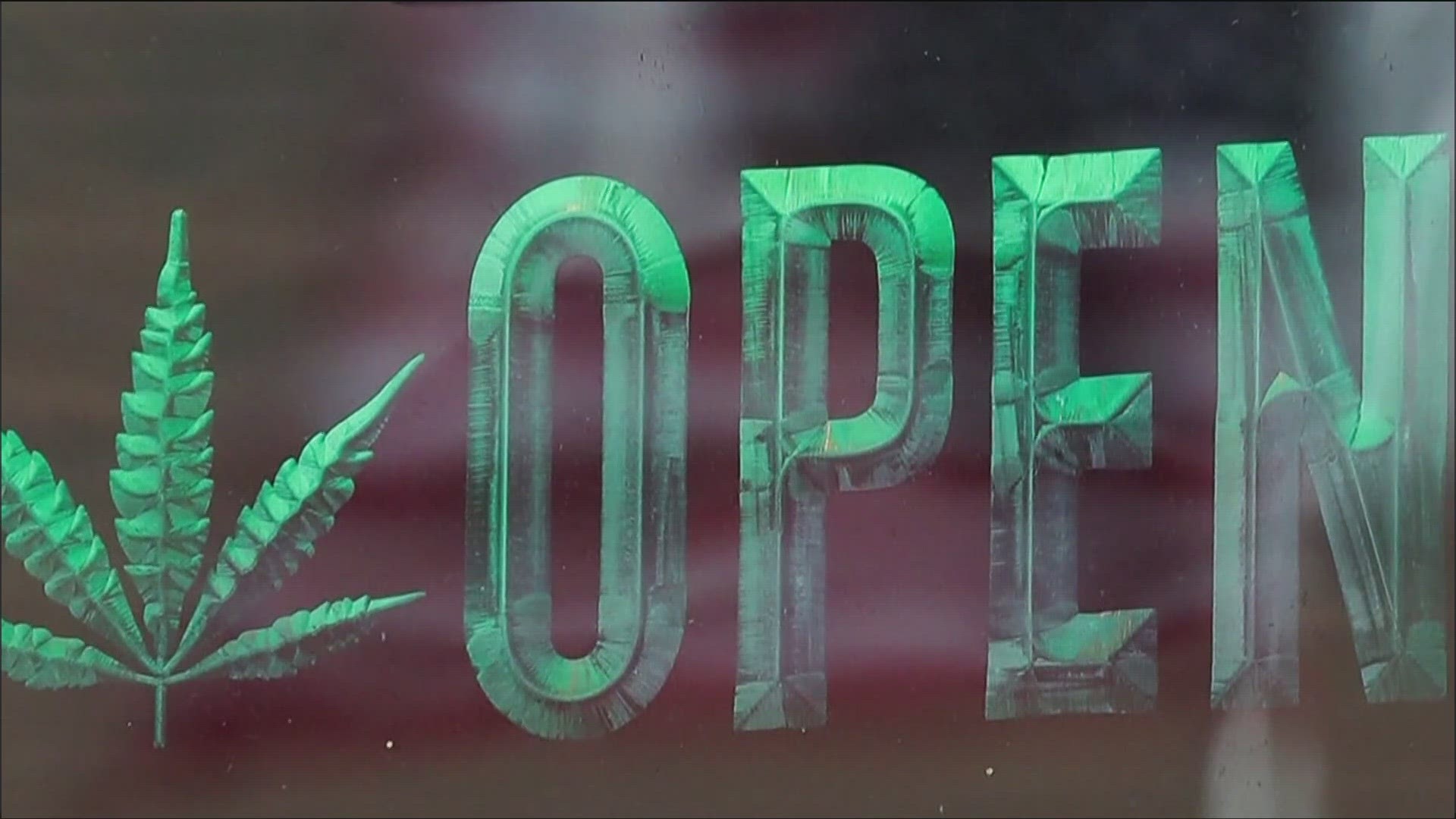ATLANTA — A Georgia Supreme Court decision released this week, coupled with a bill progressing through the state legislature, has the cannabinoid product Delta-8 (and its counterpart Delta-10) back in the spotlight.
Currently the products exist in a kind of gray area, which the bill - HB 458 - could clear up if it passes the legislature. It's already passed in the Georgia House, and on Thursday a Georgia Senate committee held a hearing on it.
There was so much interest in the public comment period, the committee pushed back a potential vote to send it to the full Senate to next week.
But if the bill doesn't pass, the products - commonly sold for vaping or in gummy/candy forms, usually at gas stations or smoke shops - will continue to exist in uncertain territory, thanks to the state Supreme Court decision.
What is Delta-8?
It's considered a cannabinoid that's frequently sold for vaping or in edible forms. It can produce a psychoactive "high" similar to cannabis though it's considered less pronounced than delta-9 THC.
The U.S. Food and Drug Administration (FDA) warns about the distinction between Delta-8 and other hemp products, noting that people may conflate the non-psychoactive association with hemp with Delta-8, which does produce psychoactive effects.
The FDA also says the manufacture of some Delta-8 products is not well-regulated and may contain "potentially unsafe household chemicals" as well as other chemicals to change the color.
"Manufacturing of delta-8 THC products may occur in uncontrolled or unsanitary settings, which may lead to the presence of unsafe contaminants or other potentially harmful substances," the FDA states.
It recommends keeping Delta-8 away from children and pets.
Is Delta-8 legal in Georgia?
Sort of, unofficially (it's a little complicated).
- They're de facto legal, for the most part: Generally speaking, so long as the products contain less THC concentrations below 0.3%, most jurisdictions tend to treat them as legal under Georgia's hemp legalization statues.
- However, they're not explicitly legal under any current law: That would be changed with HB 458, which would lay out explicit regulations for cannabinoids such as Delta-8 (which is specifically named in the legislation) to be legal so long as "the final packaged product contains equal to or less than the maximum acceptable contaminant levels set forth" (0.3% THC).
- That gap in the law creates an opening for dueling interpretations: Last year, the district attorney in Gwinnett County pursued raids, arrests and seizures tied to Delta-8 products, announcing her office considered them illegal because they aren't explicitly made legal under any Georgia law.
- That resulted in a lawsuit: The suit sought an injunction against the Gwinnett DA from pursuing Delta-8 law enforcement actions. That suit eventually was awarded the injunction in a Fulton County court, which temporarily settled the matter.
- But....: This is where the Georgia Supreme Court decision comes in. The ruling didn't have anything to do with the debate about how to interpret state laws and Delta-8 products, but instead dismissed the lawsuit essentially on a legal technicality concerning sovereign immunity provisions (if you want more of an explanation on that, you can read here).
- So what now?: Well, the state Supreme Court's ruling vacated the earlier Fulton County decision - and, with no other court decision specifically concerning Delta-8, that more or less puts it back in the gray area where they tend to be treated as legal, but a district attorney could still decide to prosecute it as illegal.
- What about the bill?: The end of the 2023 legislative session is on March 29. So there's 12 days for the Georgia Senate to pass the bill and formalize regulations for these products while the current legislative session is still active. Gov. Brian Kemp would then need to sign the legislation - it's unclear where he stands on the issue.
- And if the bill doesn't pass?: Then it'll probably have to go back to the courts, most likely with a new lawsuit that doesn't name the Gwinnett DA as a defendant (which is what triggered the sovereign immunity issue).

